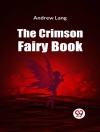In ‘Demons (The Possessed / The Devils) – The Unabridged Garnett Translation, ‘ Fyodor Dostoevsky delves into the tumultuous sociopolitical landscape of 19th-century Russia, exploring the entanglements of nihilism, radicalism, and moral decay. The narrative intricately weaves the conflicting ideologies of revolutionary characters against a backdrop of existential dread, framed in Dostoevsky’s characteristic psychological depth and intense character development. His literary style combines rich philosophical discourse with gripping drama, creating a profound commentary on the nature of evil and the human condition, reflecting the turbulence of his times and the existential dilemmas faced by society. Dostoevsky, born in 1821 in Moscow, was deeply influenced by personal experiences, including his years in prison, struggle with faith, and critiques of radical thought. These experiences informed his exploration of moral and ethical dilemmas, positioning him uniquely to address the pervasive social unrest of his era. ‘Demons’ serves as a culmination of his literary exploration into the nature of fanaticism and its disastrous consequences, revealing the darkness that lurks within both individuals and society. This unabridged translation makes Dostoevsky’s complex themes accessible, inviting readers to grapple with profound questions of morality, identity, and societal structures. Recommended for those seeking to understand not only Dostoevsky’s oeuvre but also the broader cultural and philosophical currents of his time, ‘Demons’ is an essential read that prompts reflection on contemporary issues of extremism and moral responsibility.
Про автора
Fyodor Mikhailovich Dostoevsky (1821-1881) is one of the most influential figures in the pantheon of Russian literature. With an oeuvre that includes novels, short stories, and essays, Dostoevsky’s exploration of psychological depths, philosophical existentialism, and societal critiques has earned him a legacy as a profound literary artist and thinker. His work often delves into the human condition, tackling themes of poverty, spirituality, freedom, and human suffering with exceptional insight and complexity.
Dostoevsky’s novel ‘Demons’ (also known as ‘The Possessed’ or ‘The Devils’), in the unabridged translation by Garnett, is a political and social satire that reflects the radical ideological conflicts of 19th-century Russia, particularly touching on the rise of nihilism and anarchy. The narrative unfolds in a small provincial Russian town, embroiled in chaos as it is infiltrated by a group of destructive revolutionaries. This work serves not only as an intricate psychological drama but also as a sharp critique of the political upheavals of his time. Dostoevsky is acclaimed for his complex characterizations and his literary style, which combines narrative suspense with deep philosophical introspection and extensive dialogues. His contributions to literature and thought continue to be celebrated and studied, with ‘Demons’ being just one of his many monumental works.












